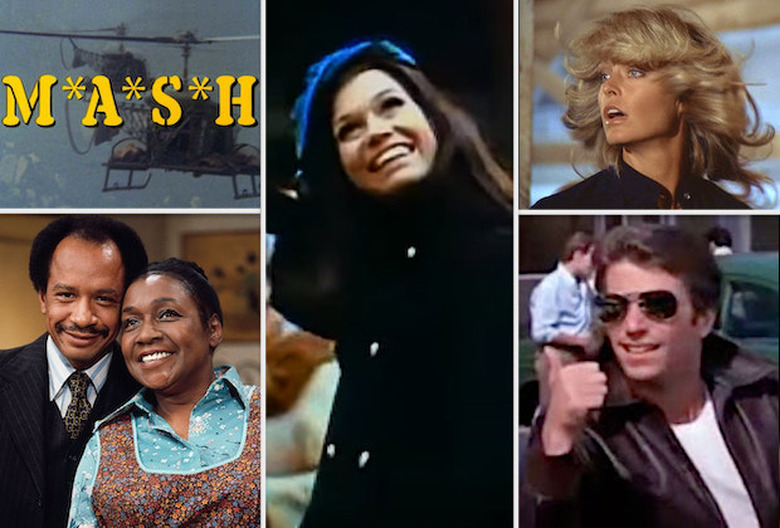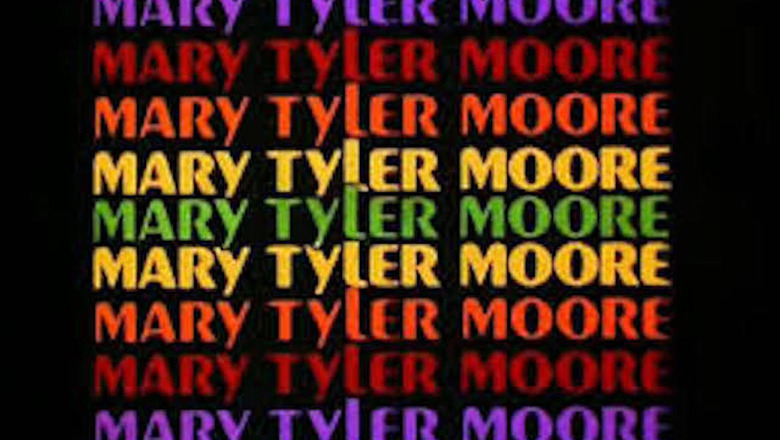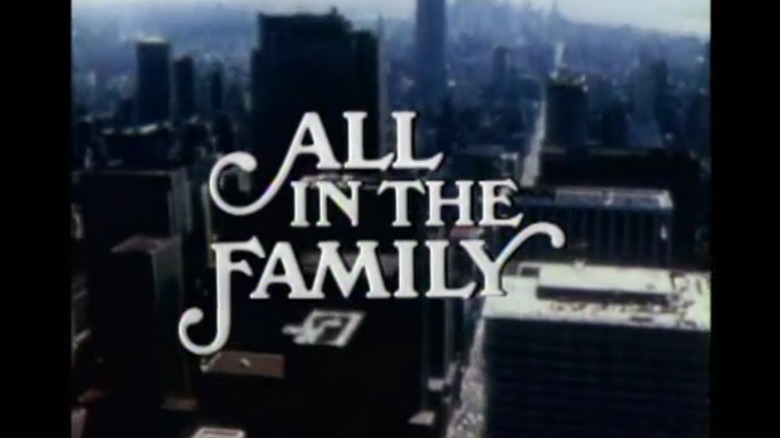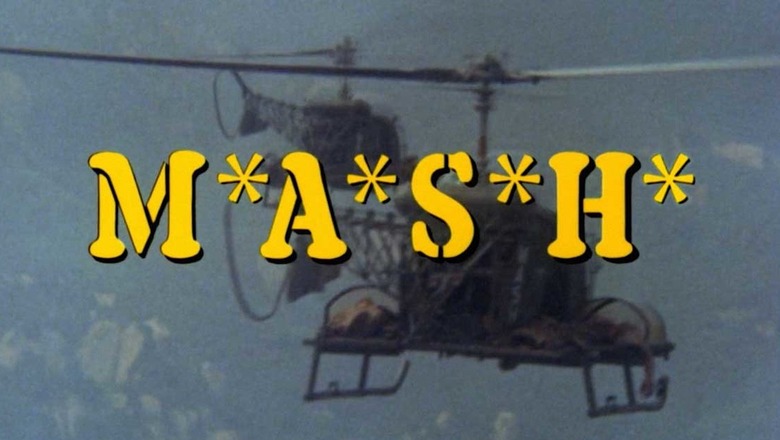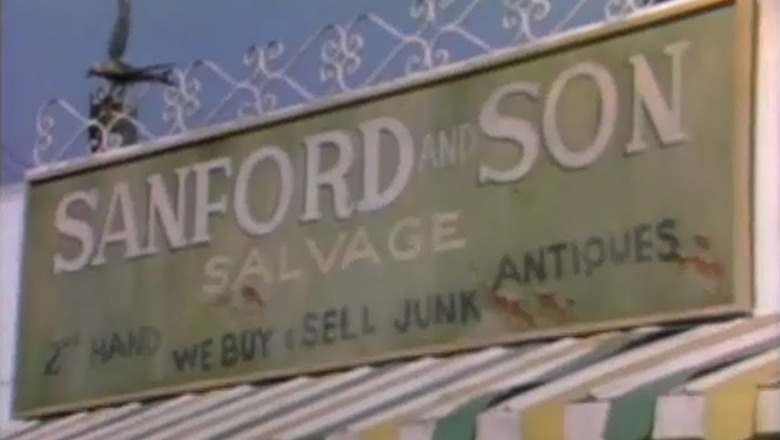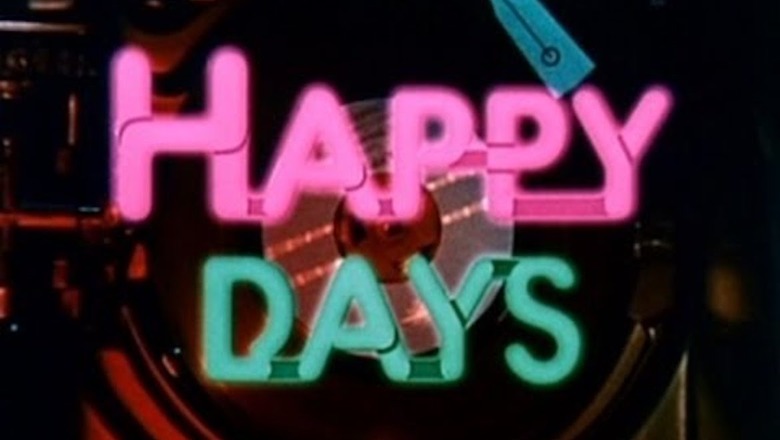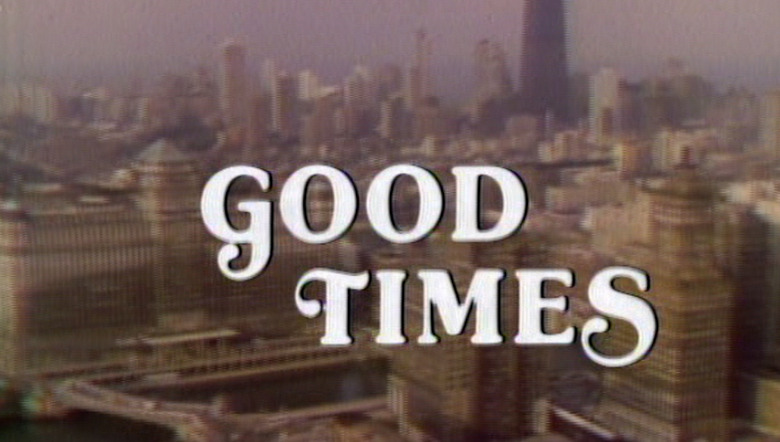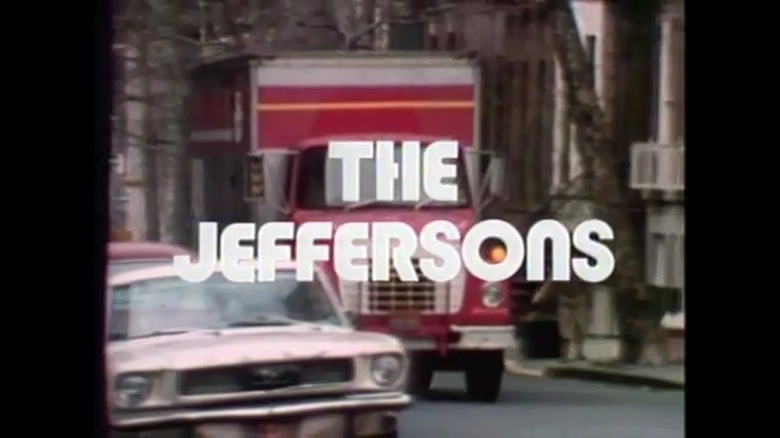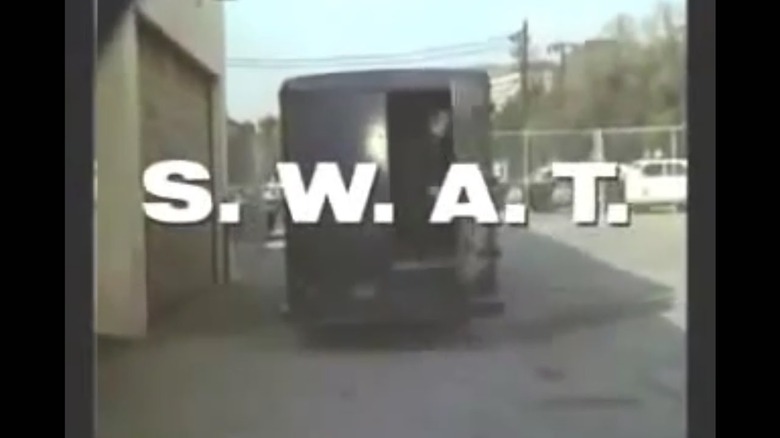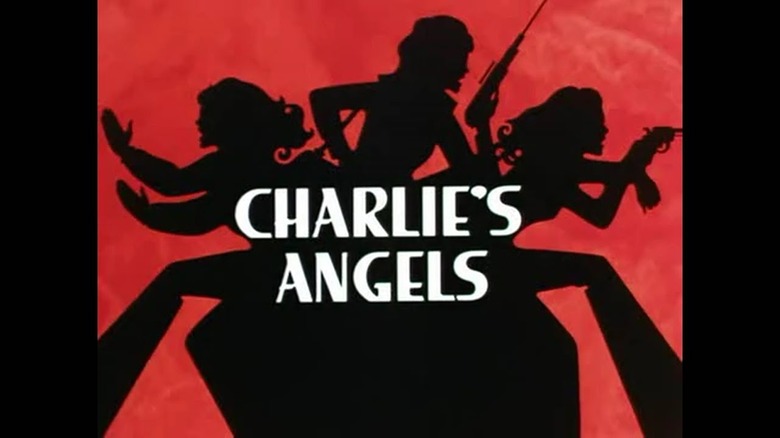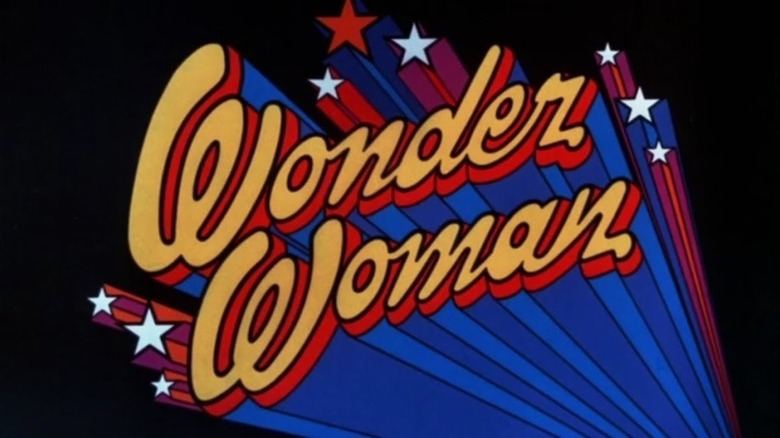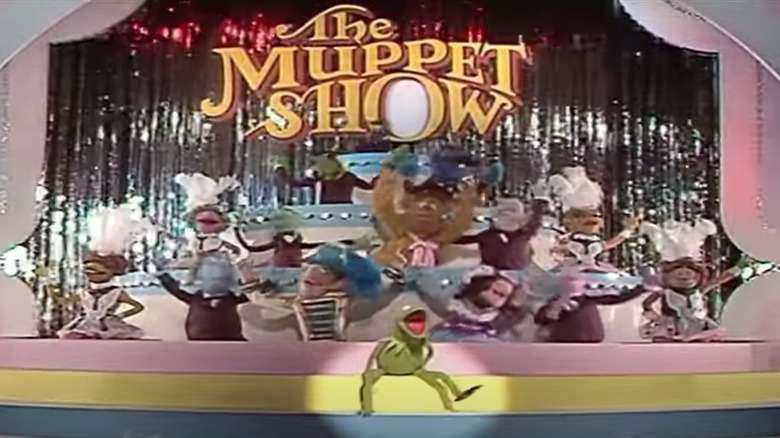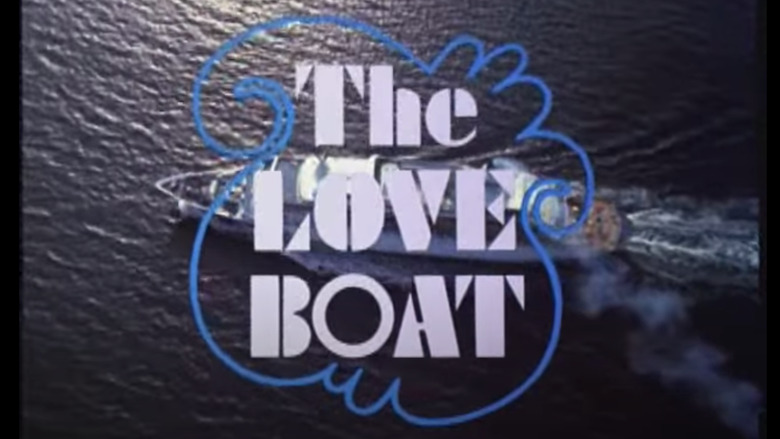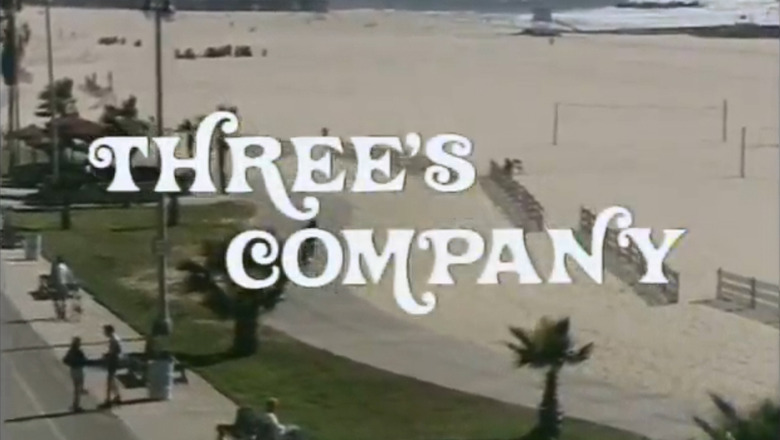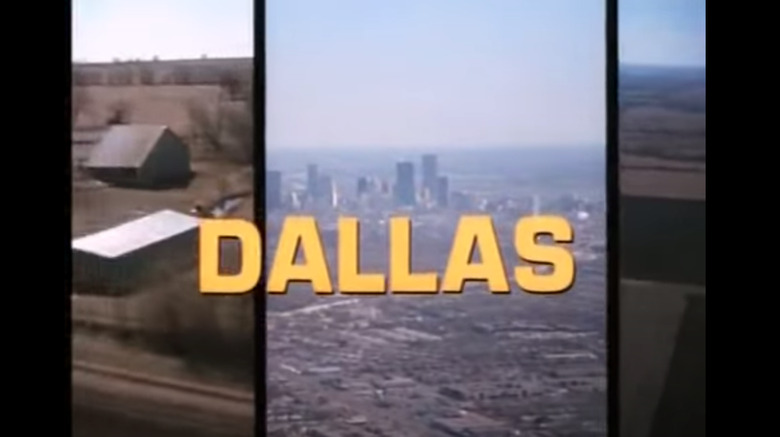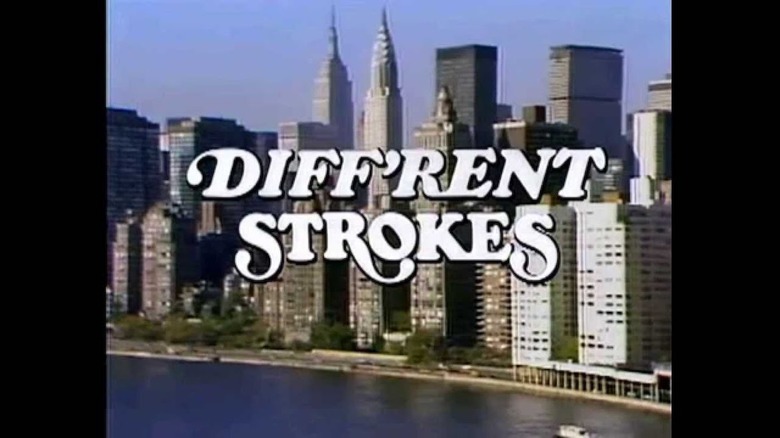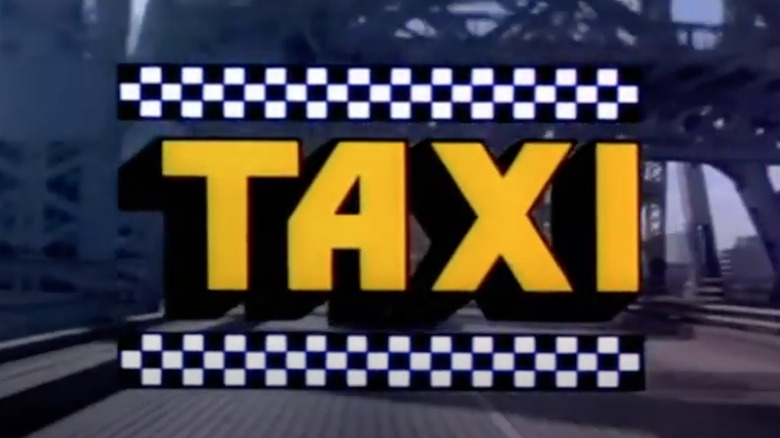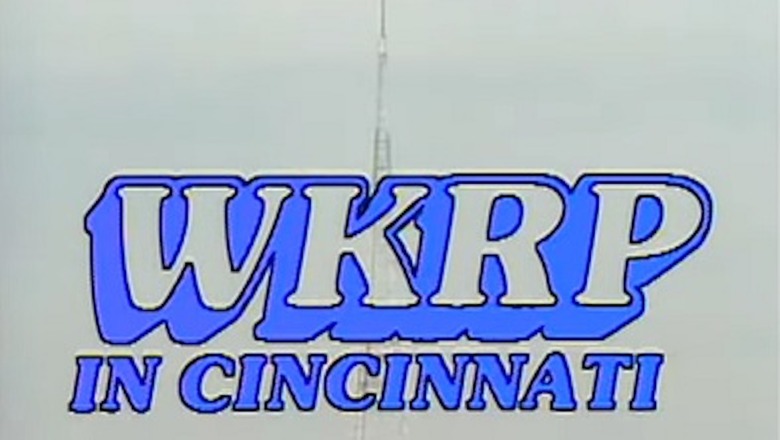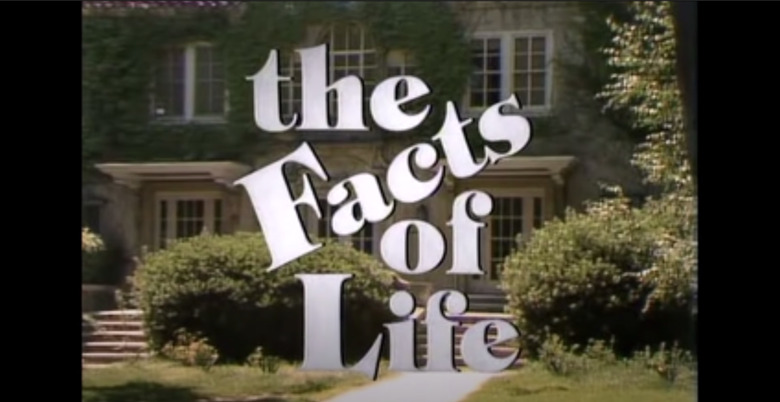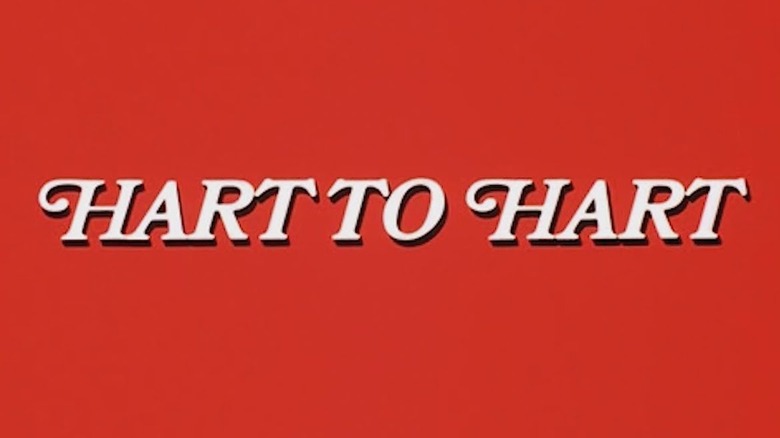The Top TV Theme Songs Of All Time: 1970s Edition
TVLine's mutli-part review of TV's all-time greatest theme songs is movin' on up (movin' on up) this week, to the 1970s.
Based on U.S. series' premiere dates, we're continuing our series with a look at the groovy '70s. Of note here is that whereas CBS seemed to dominate our first round-up, of theme songs from the 1950s/60s, ABC this time also proves to be quite dyn-o-mite during the disco era, creating memorable music for the likes of The Love Boat, Charlie's Angels, the OG S.W.A.T. and Happy Days.
TVLine's remaining TV theme song reviews will similarly tackle a decade at a time, visiting a bar where everyone knows your name... kiss-and-telling about being seen with Farrah... and hearing about how the Fresh Prince's life got flipped-turned upside-down. We'll also learn that Rachel, Ross et al will always be there for us... take a slo-mo tumble with Don Draper... and cue up TV's second take on One Day at a Time.
Oh, and for you fans of animated fare, there will be a special "best of" list that is bound to please your brain (...brain, brain, brain).
Review our selection of U.S. TV themes from the '70s and vote for the very best/most effective ones in the Comments. (Or, click this link and vote!)
THE MARY TYLER MOORE SHOW (1970)
"Love Is All Around," was written and performed by Sonny Curtis. Though the musical composition remained mostly the same throughout the series' seven seasons, the lyrics were eventually altered. In Season 1, the theme sang, "How will you make it on your own?" and ended with "You might just make it after all." Beginning in Season 2 (embedded above), the lyrics took a more optimistic turn: "Who can turn the world on with her smile? ... You're gonna make it after all." The tweak reflected Mary Richards' life changes, having moved and settled into her new home. Additionally, an instrumental version of the track opened Moore's variety show, The Mary Tyler Moore Hour, which ran for only one season in 1979.
ALL IN THE FAMILY (1971)
Performed by stars Carroll O'Connor and Jean Stapleton, "Those Were the Days" featured lyrics by Lee Adams and music by Charles Strouse. The track became one of the decade's most renowned themes, and was even released as a single via Atlantic Records. It reached number 43 on the Billboard Hot 100 and number 30 on the Adult Contemporary chart in early 1972. The officially released version was longer and invoked a sense of sadness, referencing many social changes that were occurring in the '60s and '70s. In addition to his work for television, Strouse achieved fame writing the music for Broadway musicals such as Bye Bye Birdie and Annie.
M*A*S*H (1972)
"Suicide Is Painless" was originally commissioned for Robert Altman's 1970 M*A*S*H film — specifically, to be "the stupidest song ever written," as sung by a private during the satirical "Last Supper" for despondent dentist Walter "Painless Pole" Waldowski. Ultimately it fell on Altman's 15-year-old son to write lyrics that were that bad enough, at which point Johnny Mandel composed a melody to fit. Altman wound up liking the end product so much, he played an instrumental version of it over the opening credits for both the film (to Mandel's short-lived protest) and the eventual TV series.
SANFORD AND SON (1972)
Composed by the Quincy Jones, "The Streetbeater" is considered one of TV's all-time great instrumental themes, and at one time ranked No. 9 on sister site Rolling Stone's reader poll of TV Theme Songs. No, there have never been any official lyrics, though some of us formed some in our heads over the years ("Fred Sanford/Fred Sanford had a son/And a junkyard...."), and Ella Fitzgerald once scatted a version.
HAPPY DAYS (1974)
We were greatly conflicted over which Happy Days theme to highlight here. In the original opening, a version of Bill Haley & His Comets' "Rock Around the Clock" played over American Graffiti-style vignettes in which a carhop spills milkshakes on a policeman... Richie and Potsie guffaw over Ralph Malph's necking session gone amiss... and a convertible top claims a ponytail wig. Starting with Season 3, though — as a way to dodge expensive royalty fees — the comedy's closing theme, "Happy Days" (which was composed by Charles Fox with lyrics by Norman Gimbel, and which producer Paramount owned), was refashioned to open the show, accompanied by some actual clips — including of breakout character The Fonz.
GOOD TIMES (1974)
To hear lyricists Alan and Marilyn Bergman tell it, prolific sitcom producer Norman Lear didn't yet have a title for this Maude spinoff, until the husband/wife team come up with the words to "Good Times" (which was composed by Dave Grusin and sung by Jim Gilstrap and Sondra "Blinky" Williams accompanied by a gospel choir). The Bergmans, who had also collaborated with Grusin on Maude's own theme, also have set the record straight on the "Good Times" lyric that is oft mistaken to say "Hangin' in a chow line," but is actually "Hangin' in and jiving."
THE JEFFERSONS (1975)
"Movin' On Up" was written by Ja'net Dubois and Jeff Barry, with the former serving up its triumphant vocals backed by a gospel choir. Though she had a steady career on the stage and screen, Dubois is perhaps best known for playing gossip queen Willona Woods on Good Times. Barry, on the other hand, was a wildly successful pop songwriter who co-wrote tracks like Manfred Mann's "Do Wah Diddy Diddy" (originally recorded by The Exciters), The Crystals' "Da Doo Ron Ron" and The Ronettes' "Be My Baby." The Jeffersons theme became so popular that Sammy Davis, Jr. even recorded his own cover version in 1978.
S.W.A.T. (1975)
Written by Barry De Vorzon and as performed by the funk group Rhythm Heritage, "Theme From S.W.A.T." reached No. 1 on the Billboard Hot 100 singles chart in February 1976, one year after the ABC cop drama's debut. The actual theme heard on The Rookies' spinoff, however, was performed De Vorzon's own orchestra (with an arrangement by Dominik Hauser), while an adaptation of it is used for CBS' current reboot. (Fun fact: De Vorzon also co-composed the iconic instrumental "Nadia's Theme" for CBS' long-running daytime soap, The Young and the Restless.)
CHARLIE'S ANGELS (1976)
The dreamy theme for Charlie's Angels was written by Jack Elliot and Allyn Ferguson. Elliot had a diverse career, having completed stints as the music director for the Academy Awards, Emmys, Kennedy Center Honors and the 1984 summer Olympics. He also held down the gig of the Grammys' music director for 30 straight years. The Angels franchise continued with the 2000 McG film, which saw the classic theme get an electronic upgrade performed by Apollo 440. Another version, the Black Caviar Remix, was released for Elizabeth Banks' 2019 reboot.
WONDER WOMAN (1976)
With music by Charles Fox and lyrics by Norman Gimbel, the Wonder Woman opening credits saw a few key changes over the course of its three-season run. First, the animation seen in the clip above, which was used before and after commercial breaks as well, was eventually dropped in favor of highlighting more action scenes. In Season 3, the theme was re-recorded to give it a trendier, pulsating disco beat. Composer Fox's other claims to fame: He co-wrote the theme for The Love Boat with Paul Williams, and co-wrote "Killing Me Softly With His Song," which was recorded and popularized by Roberta Flack in 1973 and later covered by The Fugees in 1996.
THE MUPPET SHOW (1976)
"The Muppet Show Theme" was written by muppet-maestro Jim Henson along with composer Sam Pottle, who spent many years writing tracks for another iconic puppet show, Sesame Street. While the lyrics were often re-worked season to season, the composition essentially remained the same, becoming a staple of the series and following the franchise through many subsequent shows and movies.
THE LOVE BOAT (1977)
Composed by Charles Fox to lyrics by Paul Williams, "Love Boat" was sung by Jack Jones (except when Dionne Warwick's not-great version was used for the ABC series' ninth and final season). The tune has been covered, sometimes not ironically, by many since, including 10-time Pacific Princess passenger Charo. (Fun fact: Jack Jones randomly pops up to croon the tune in Airplane II, as Ted Stryker sneaks out of a loony bin.)
THREE'S COMPANY (1977)
Written by Joe Raposo (who also composed for Sesame Street and The Electric Company), "Come and Knock on Our Door" was performed by Ray Charles (no, not the blind soul pianist) and Julia Rinker. This Charles was the leader of the Ray Charles Singers, who were frequently featured on Perry Como's records and assorted TV programs for over three decades. He spent time working on The Muppet Show, writing material for guest-stars like Carol Burnett and Brooke Shields, and was a musical consultant of the Kennedy Center Honors. Raposo also had a robust resume, which included the theme song for the Three's Company spinoff The Ropers.
DALLAS (1978)
Jerrold Immel, who cut his teeth scoring the final seasons of TV's Gunsmoke, was tapped to pen the rousing theme for CBS' breakthrough primetime sudser (though the "sliding panels" visuals, designed by Wayne Fitzgerald, proved to be just as iconic). Immel went on to compose themes for the Dallas spinoff Knot's Landing, as well as Voyagers! and Guns of Paradise.
DIFF'RENT STROKES (1978)
Before he became famous for playing Dr. Jason Seaver on Growing Pains, Alan Thicke had a career as a game show host and composer, writing theme songs for shows like Diff'rent Strokes (along with Al Burton and Gloria Loring) and The Facts of Life. Those are Thicke's vocals you hear on this snappy toe-tapper; he also sang the intro for the theme he wrote for the short-lived '70s game show, The Wizard of Odds.
TAXI (1978)
Jazz keyboardist/arranger Bob James' "Touchdown" (listen here) was originally set to be the NBC sitcom's theme. But when James later contributed a tune called "Angela" for Episode 3 (in which Alex goes on a blind date with the voice on Bobby's answering service), the producers liked it so much they swapped it in as the opening theme in time for the series' premiere. (Fun fact: That's cast member Tony Danza driving the cab in both the opening and closing credits.)
WKRP IN CINCINNATI (1978)
"WKRP in Cincinnati Main Theme" was composed by Tom Wells, while series creator Hugh Wilson penned its lyrics about a transient radio professional who'd grown tired of "packing and unpacking," going "town to town and up and down the dial." Akron, Ohio-based Steve Carlisle, not series lead Gary Sandy, sang the tune. (Fun fact: Jim Ellis composed the series' closing theme as well as provided its gibberish lyrics, which were intended as a placeholder goof yet spoke to Hugh Wilson as symbolizing the general unintelligibility of rock lyrics.)
THE FACTS OF LIFE (1979)
Another creation of Alan Thicke's, The Facts of Life theme was also penned alongside Al Burton and Gloria Loring. Loring and Thicke were married from 1970–1986 and had two children together, including pop singer Robin Thicke. While Charlotte Rae and some of the cast sang lyrics for the Season 1 theme, Loring took over vocal duties starting in Season 2 (embedded above).
HART TO HART (1979)
This truth is out there: Mark Snow, who composed Hart to Hart's fast-paced opening tune — over which "Max" explained to us who is who and how when they met "it was murder" — went on to compose The X-Files' haunting theme song, Smallville's heroic closing theme, and others.
